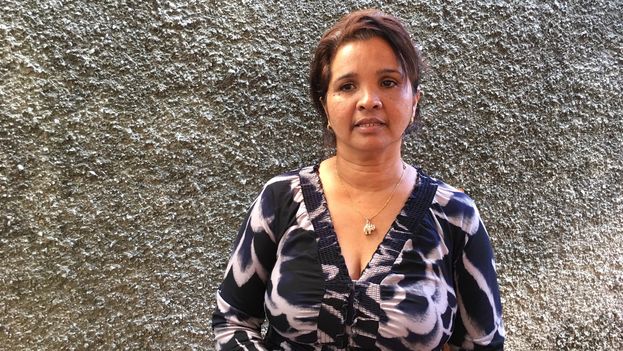
![]() 14ymedio, Havana, 5 August 2017 — Economist Karina Gálvez received the prosecution’s petition on Saturday for the alleged crime of “tax evasion.” According to this petition, the member of the Center for Coexistence Studies (CEC) could be sentenced to three years of house arrest and confiscation of her home, she informed 14ymedio.
14ymedio, Havana, 5 August 2017 — Economist Karina Gálvez received the prosecution’s petition on Saturday for the alleged crime of “tax evasion.” According to this petition, the member of the Center for Coexistence Studies (CEC) could be sentenced to three years of house arrest and confiscation of her home, she informed 14ymedio.
“A messenger from the Tribunal, on a motorcycle, came to my mother’s house to give me a document that I had to sign as received,” she says. “The paper, sent by the Municipal Court of Pinar del Rio, details that the prosecutor has arrived at provisional accusations.”
The prosecution is asking for “three years of deprivation of liberty plus the same period of limitation of freedom.” This latter means a person cannot travel abroad, must inform the authorities when leaving the province, and is obliged to have work.
The accusation also requires the forfeiture of the house that Gálvez acquired after the flexibilizations for the purchase and sale of houses promoted by the Government of Raúl Castro at the end of 2011.
In the next five business days, her lawyer will present a plea to ask for acquittal or a lower penalty. “Starting with this communication, my lawyer will have access for the first time to the case file,” says the economist.
However, neither the lawyer nor the defendant has been informed of the date of the oral hearing.
In January, Galvez was arrested and taken to the headquarters of the State Security where she spent six days under arrest. The police searched her home and since then the house has been under investigation and is sealed, which prevents access for the owner or her family.
The economist has been under pressure from the authorities since last December when she was summoned to the Department of Immigration and Immigration (DIE), where she was questioned about her travels outside Cuba.
Other members of the Convivencia magazine have been cited by the police and have received warnings, including the director of the publication, Dagoberto Valdés, who last October was told by an official that “from today” his life will be “very difficult.”
Amid this wave of pressure, members of the CEC, which organizes training courses for citizens and civil society, issued a declaration of commitment to their work in the island. “We are not leaving Cuba, we are not leaving the Church and we will continue working for the country.”
